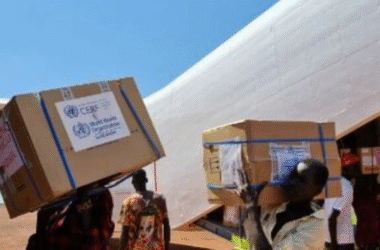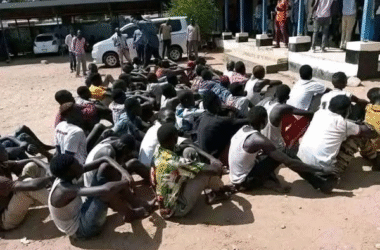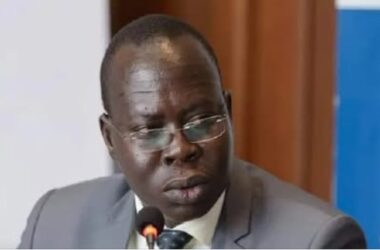By William Madouk
A section of parties to the 2018 revitalized peace agreement have raised a concern that their forces, who are part of the Necessary Unified Forces (NUF), are still not getting salaries.
Sudan Peoples’ Liberation Movement/Army-in-Opposition (SPLM/A-IO) and the South Sudan Opposition Alliance (SSOA) complained yesterday, about ‘unfair’ treatment and segregation.
Maj. Gen. Andrea Mungu, who represents SPLM/A-IO at the ceasefire monitoring body, CTSAMVM, stated that as parties wrap up the peace deal, security arrangements still face uphill tasks with training, deployment, and the second high command structure.
“I would like to urge the concern of those who are implementing the security arrangements to hurry up with the second phase arrangement and the rest of the first phase that has been deployed.”
“But others are still there; there are still other organised forces; they are still in the training centres, suffering from no shelter, no medicine, and so on.
He noted that this continues to happen due to a lack of good will, adding that unified forces are necessary for the conduct of free, fair, and transparent elections.
“Yet, our forces that were already deployed are having some challenges. They’ve been deployed as a unified force, but they still have different names of parties,” he explained.
General Mungu disclosed that when supplies are sent from Juba, they’re branded with parties’ names, for instance, SPLM-IG, SPLM/A-IO, and SSOA, which shows that the unification isn’t genuine.
“Coming to salary, the forces that are not yet in the system are not getting anything. They remain like that, and the others are getting. It means that unification is just a fake name given to them,” he echoed.
“When we are already united, it means that everything should be equal, without segregation. I hope the forces that are not getting salaries should be recognized like others,” he continued.
Maj. Gen. Jany Kaway, representative of SSOA to CTSAMVM, said only 4,000 troops were deployed, but about 53,000 are still at training centers. He urged the presidency to expedite their redeployment.
“The unified forces that have been deployed are 4,000 troops. But my question is: the remaining forces in the training centre are big. There are around 53,000, and they have not graduated,” said Kaway.
“So I am urging the NTC and the Presidency to speed up the graduation of these forces. Because of what? We are going for elections. And if we are going for elections, there is something called election security,” he emphasized.
Besides, Mr. Kaway rued the lack of arms, adding that this would make the forces semi-soldiers but fully combatants.
“First, they are lacking armament—they don’t have arms. If a soldier is deployed without an arm, you don’t call it a soldier. It’s a semi-soldier because it’s not complete. So I myself don’t see those forces as unified forces,” he maintained.
Additionally, Kaway noted that some of the forces have not been paid up to date.
“Why do you not want to pay for those forces?” he questioned.
Meanwhile, Maj. Gen. Bior Leek, representative of Former Detainees (FD), said unified forces are vital to quell subnational violence and insecurity and would also bring to an end nonstop defections.
“We would appreciate the National Government and IGAD making this National Unified Force effective in order to help us and stop the violations done on the ground,” he urged.
According to Leek, clashes and violations between parties happen simply because forces are yet to be unified, graduate, and redeployed; thus, when a member of party ‘A’ crosses to areas controlled by party B, a fight erupts.
“So when the government or the SSPDF army go to that area without a National Unified Force like SSOA and SPLM/A-IO, they will look at it as a government attack. “That is one of the examples now in Unity State for the governor,” he clarified.
Col. Lam Paul Gabriel, the SPLA-IO spokesman earlier, called on the government to start paying all unified forces, describing the repeated nonpayment of their dues as discriminatory.
But Major General Lul Ruai Koang, the SSPDF spokesperson, earlier told the No. 1 Citizen Daily Newspaper that the army leadership could not pay the opposition forces because they were yet to be budgeted for.
“When the necessary unified forces were brought together, the key actors concentrated on other processes of bringing them together, screening, and then, from prison, they did not include them in the budget,” said Koang.
He underscored that forces from the opposition need their names to be taken to the president for confirmation so that they are included in the system.




